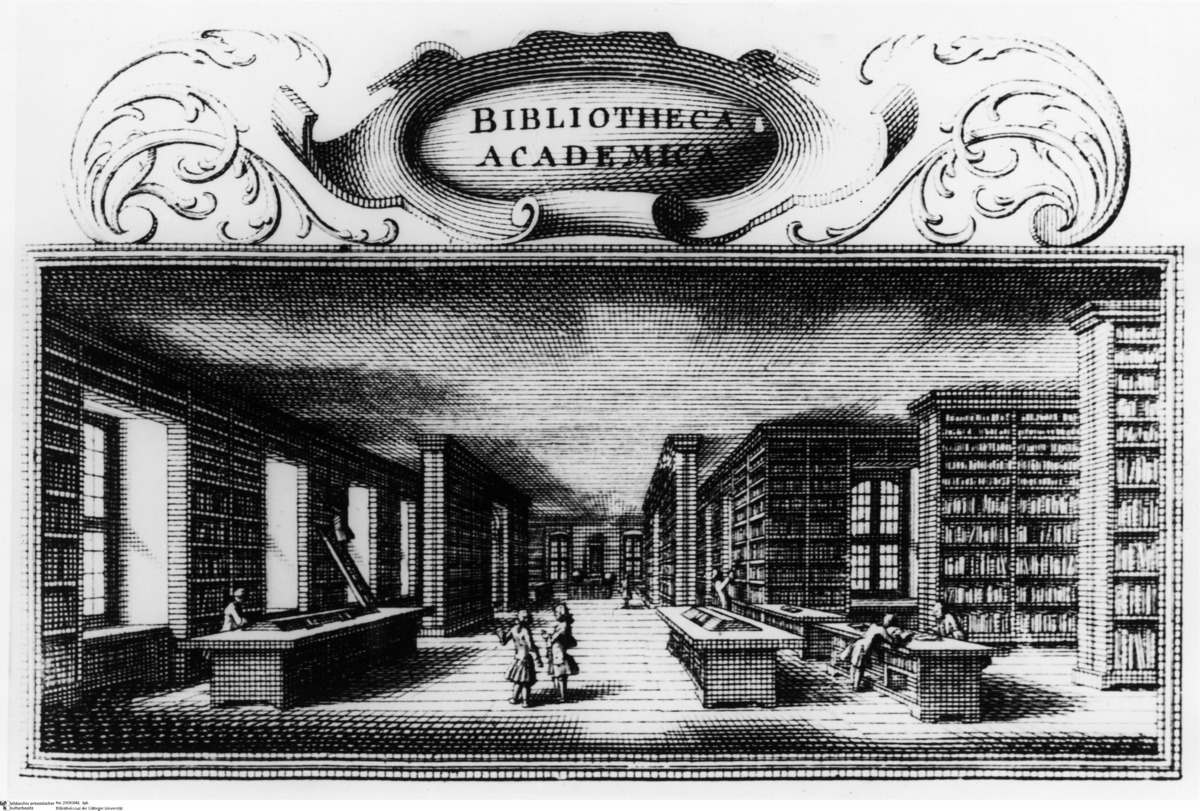Source

Source: bpk-Bildagentur, image number 20030848. For rights inquiries, please contact Art Resource at requests@artres.com (North America) or bpk-Bildagentur at kontakt@bpk-bildagentur.de (for all other countries).
The University of Göttingen was founded in 1734 with support from Elector George Augustus of Hanover (who was at the same time King George II of Great Britain). During the second half of the eighteenth century, it became the most influential post-secondary institution in Germany. Its close connection to Britain, which was further cultivated by the Hanoverian statesman Baron Gerlach Adolph von Münchhausen (1688-1770), helped it become a channel for enlightened, early liberal, and constitutional ideas. The university’s conciliatory confessional policy and richly endowed university library (shown here) helped it attract students. Copperplate engraving, unknown artist, eighteenth century.

Source: bpk-Bildagentur, image number 20030848. For rights inquiries, please contact Art Resource at requests@artres.com (North America) or bpk-Bildagentur at kontakt@bpk-bildagentur.de (for all other countries).
bpk